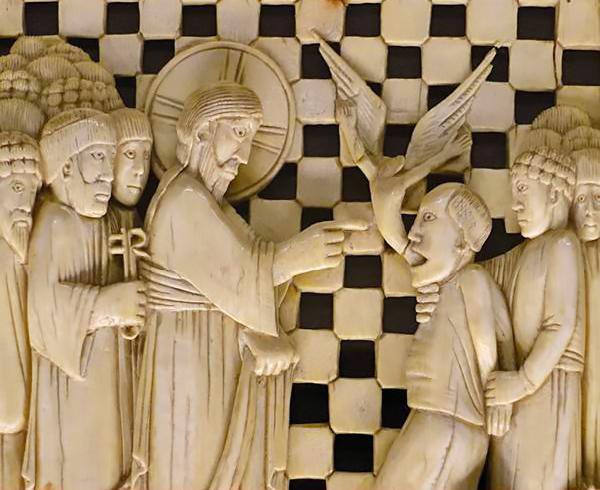
Jesus comes to Capernaum in our Gospel reflection today from Mark. He enters the synagogue on a Sabbath, where he begins to teach. Then scripture says that the “people were astonished at his teaching, for he taught them as one having authority and not as the scribes.” Bishop Robert Barron writes that ordinary teachers would have appealed to their own teachers and authorities and, finally, to Moses and the Torah, which were unassailable. Then, a man with “an unclean spirit” rushed into the synagogue and said to Jesus: “I know who you are—the Holy One of God.” It is then that Jesus demonstrates his authority: “‘Quiet, come out of him!’ And the unclean spirit convulsed him with a loud cry and came out of him.” The claim to God’s own authority is now ratified by showing power over the spiritual realm. As frightening and real are the power of demons, the authority of Christ is infinitely superior. Through his cross and resurrection, Christ definitively conquered the powers of hell. For the present time, however, their malicious actions are permitted by God, who can work good out of every evil. The grace of baptism affords us protection from demons and the strength to resist their seductive influence. And now they and we have to make a decision. Are we with him, or are we against him? If he is who he says he is and who he demonstrates himself to be, then we have to give our lives to him.









